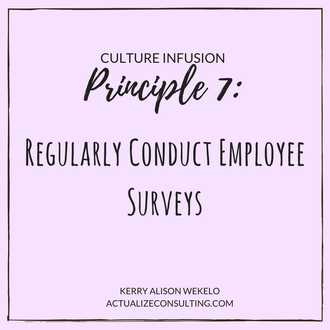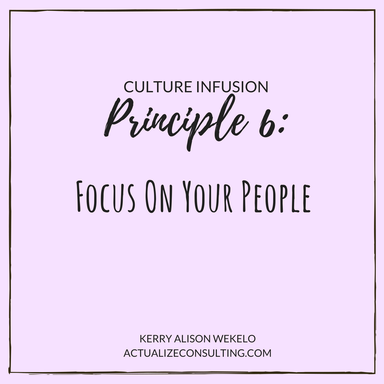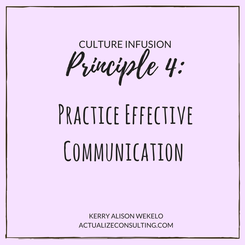 Good leaders are effective communicators. And effective communicating begins with active listening. Practicing the following five guidelines will help you become an active listener: (1) being empathetic, (2) giving your full attention, (3) refraining from judgment, (4) responding positively, and (5) being aware of your own inner response. 1. Be Empathetic Active listening begins with empathy. A person who is empathetic can see things from another person’s point of view; they are not limited to their own viewpoint. Empathetic listening helps improve understanding, respect, and trust. Being empathetic can require a great deal of patience and practice and can be especially difficult when personal issues, struggles, and problems cloud your listening. With practice, however, you will be (correctly) perceived as being more caring and understanding, and because of this, you will be able to help deescalate tense discussions. 2. Give Your Full Attention Focusing on what a speaker is communicating through both words and body language is a central part of active listening. It may seem like a simple skill, but uninterrupted focus on another person requires discipline. Technology and other distractions can easily shift our focus off the speaker, and he or she will usually sense our wanderings. This usually interrupts the flow of communication. Listeners must put away their devices and refrain from watching the clock or moving around. Active listening is about being fully present—giving the speaker undivided attention and being mindful to what is being said. 3. Refrain from Making Judgments Another essential part of active listening is suspending judgment. Speakers who feel judged by a listener’s counterpoints and disagreements may be reluctant to finish their points and might feel that such an environment is not a safe place in which to share. When leaders judge, they expose their lack of maturity and their difficulty in welcoming differences of opinions. Great leaders listen to understand and welcome different opinions and ideas. They listen without assumptions about why a speaker is saying certain things or using a certain tone, and they treat other people’s opinions with compassion and respect. 4. Respond to Show Understanding Active listeners show that they understand what a speaker is communicating. This can take a more subtle form such as smiling and making eye contact, or a more direct form such as asking questions and verifying understanding. Relevant questions show the speaker that the listener has been paying attention, and in turn, the speaker’s responses can help the listener learn more about the topic at hand and develop more interest in what is being said. Questions also help build rapport between the speaker and listener. Shared understanding is essential to a conversation and can grow when active listeners clarify points. Paraphrasing and summarizing what a speaker says can help halt miscommunication and conflict. 5. Be Aware of Your Own Inner Response Active listening at its best involves listening not only to the person speaking but also to one’s own inner response. Your inner response shapes how you listen, so the greater your internal awareness, the more control you will have over your responses. For instance, a listener who is not aware that they are internally judging a speaker will not work to suspend their judgement. Or, a listener who is not aware that a speaker’s story has touched a chord in their own life may respond shortsightedly out of their own experiences rather than listening for the story’s unique impact on the speaker’s life. The case for active listening is clear. Leaders who practice active listening will be able to enjoy the benefits of improved relationships, less stress and frustration, more compassion, and a broader understanding of others. Being empathetic, paying attention, avoiding judgment, being responsive, and being aware of their own inner responses will all help make leaders active and effective listeners. Click here to view Communication Training
Follow Duncan www.stagesevenfitness.com/blog
Exceptional leaders possess four important qualities: self-awareness, purposefulness, understanding and authenticity. Great leaders are able to empower themselves and the people they work with through self-reflecting, creating clear intentions, recognizing their teammates unique differences and living as role models for what they expect from others.
1. They Practice Self-awareness Self-awareness is a quality that is present in almost every successful leader. For leaders to be effective, they need to be able to understand their values and understand which areas they need to improve. Leaders who are self-aware recognize their strengths and weaknesses. Acknowledging weaknesses can be uncomfortable for leaders, however, looking inwardly with introspection can lead to personal growth after initialreluctance and resistance. Leaders should be able to self-reflect and trust their own intuition. 2. They Make Clear Goals Effective leaders are able to make intentional plans, visions and goals to accomplish. Goals can keep a leader focused, accountable, and motivated. Goals can also help a leader keep track of their progress. When leaders have plans and visions with a strong sense of purpose, they can expect their team to be more effective. A clear goal and sense of purpose can provide direction, energy and inspiration and can improve productivity and lead to overall success for leaders. When leaders make time to reflect on their intentions, they can create a clearer vision that can help them explain their goals to others and garner support. 3. They Understand Differences Among Team Members Great leaders recognize the skills and talents of their team members. They understand that their team members have unique abilities and leaders are able to help them utilize their strengths. They also recognize that their team members will come from different backgrounds, levels of experience, and ages. Baby boomers tend to be morereserved, whereas millennials tend to be more interested in collaboration and are good with technology. Great leaders can use the different qualities, skills, and ages of their team members to foster well-being. 4. They Lead by Example Good leaders practice what they preach and they lead by example. They are authentic in their actions and are role models to their team members. When leaders have an ethical compass that helps motivate them, they can use their skills more nobly. Effective leaders intentionally become positive examples for others. They act out what they believe and do not just speak without substance. They do not lose credibility from their actions because they have integrity. Effective leaders focus more on where their heart leads them. They take into consideration the needs of others. Great leaders are able to focus inwards. Leaders must also pay attention to their own actions and behaviours to have a greater understanding of the reasons why they behave and react in certain ways. When leaders can take a good look at themselves and their weaknesses, they can develop and grow. The most effective leaders are observant of themselves and of others, are able to make clear goals and plans and are able to lead by example. Click to originally published article.
Some employees just aren’t into their jobs. In fact, that may be true for most of them. The Gallup organization, which regularly measures employee engagement across the country, reports that just 32 percent of employees say they are enthusiastic about and committed to their work and workplace. It doesn’t have to be that way, though, says Kerry Alison Wekelo, author of Culture Infusion: 9 Principles to Create and Maintain a Thriving Organizational Culture (www.kerryalison.com). With the right approach, she says, business leaders can improve their corporate culture and motivate employees to perform at their highest capacity. “Successful leaders are the ones who intentionally use their behavior as a positive example,” Wekelo says. “If you expect employees to work overtime for important deadlines, for example, they are much more inclined to do their best if you also stay and work the overtime.” To really get those employees engaged, a leader also must commit to supporting the growth of people and not just systems, products or processes, says Wekelo, who is managing director of human resources and operations for Actualize Consulting. Here are four ways she says leaders can do that:
|
AuthorWe love to share ways to enhance your day. Archives
March 2020
Categories
All
|





 RSS Feed
RSS Feed